 |
|
December 13, 2021
Dear Members & Friends,
The weeks ahead through January 6th, Epiphany, are full of activities in-person, online, and “hybrid,” so please check our calendar especially for Holy Nights offerings (Dec 24–Jan 6) from around the country.
It is also end-of-year appeal time, and our theme moving forward from the fall conference is Warm Heart, Focused Will. As Deb Abrahams-Dematte writes, ”anthroposophy brings inspiration, love, insight, and powerful practices to support our work” with the challenges of these times. Your gift helps this community, all of us working together as the Anthroposophical Society in America, to bring heart warmth, deep insight, and powerful resources to shape humanity’s future. Our goal is $50,000. Please follow the link to make a gift today, and thank you for all that you are doing as a conscious and caring individual in the world.
If you haven’t looked in the store recently, along with free seasonal recordings is the full printed text of Hazel Archer Ginsberg’s pageant performed at the end of our fall conference in October, “The Royal Art: A Social Pilgrimage of the Soul.” The purchase will help support further work of this kind, which has been cultivated for many years in the Central Region.
Our photos this time, apart from the Weleda founders, are December scenes in the West.
|
|
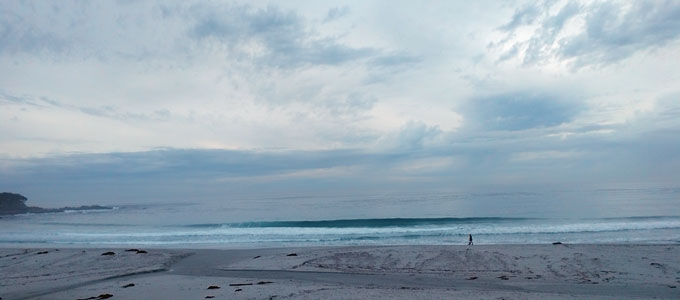 |
|
Holy Nights, 3000 BC
The Holy Nights offering from the ASA will be a reading of the ancient Sumerian saga “The Epic of Gilgamesh.” To avoid conflicts with local branch gatherings it will run just 22 minutes daily, December 24 through January 5, at 9am/12noon, Pacific/Eastern time zones. Gilgamesh? This ancient hero and his friend Eabani were culture-makers, standing at the beginning of the third post-Atlanean cultural age and the start of Kali Yuga, the long darkening of humanity’s connection with the spiritual worlds. This darkening ended, per Rudolf Steiner, at the start of the 20th century, having led us into the strong selfhood and freedom we will need for the future, when we will grow connections to the spirit again in new ways. Details for this unique offering are on its event page. Each day’s reading will be recorded and sent to all registrants. This event is free with suggested donations of $25, $50, $100.
Goetheanum talks
Three talks for December were organized by the General Section of the School for Spiritual Science, and we’ve been informed that they are open to all members and friends, click for the PDF flyer. The first talk was Dec. 1st, Claus Peter Röh spoke on “Concentration, tranquility, and awareness – creating a free inner space.” Tuesday, December 14, 23:00 CET, Peter Selg will speak on “Hope and trust in the future,” and Tuesday, Dec 21 at 23:00 CET, Constanza Kaliks addresses “World becoming – the seed meditation.” CET, Central European Time, is six hours ahead of New York and nine ahead of the West Coast. The late hour in Dornach, 11pm, was chosen to give us more convenient times in North America; the flyer gives earlier times when the talk will be shared in German.
Roots to Renewal
The remarkable Hawthorne Valley Association has a podcast called Roots to Renewal, launched as part of its fiftieth anniversary celebrations. Our own John Bloom, whose involvement with HVA goes back many years, was a guest on episode #6, speaking with executive director Martin Ping about the powerful impact money and philanthropy can have on human creativity. Follow the link above, or go direct to the episode with John. We call HVA remarkable because in fifty years it has grown from a biodynamic farm into an umbrella for many dynamic initiatives: Hawthorne Valley Waldorf School, Hawthorne Valley Farm & Farmer Training, Hawthorne Valley Farm Store, Children’s Programming, Alkion Center for Waldorf Teacher Education, Center for Social Research, Farmscape Ecology Program, Walking the Dog Theater, and Adonis Press. Altogether they have attracted many other beneficial initiatives and enriched a whole region. You can watch a short video and find out about each and all of them at hawthornevalley.org.
|
|
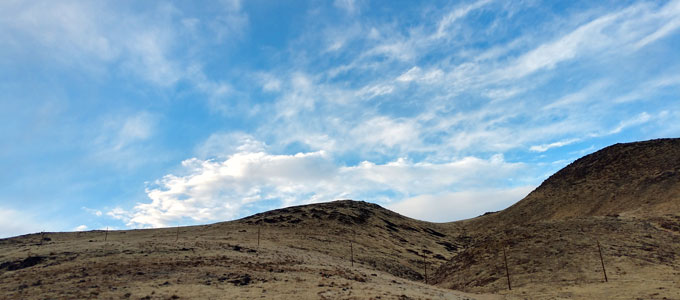 |
|
Spikenard
Last time our photos featured bees. Spikenard Farm Honeybee Sanctuary is a well-organized and inspiring entryway into the bee world. It reminds us that Rudolf Steiner gave a lecture series on the bees even before his agriculture lectures. Initiated a dozen years ago in Floyd, Virginia, by Gunther Hauk and the late Vivian Struve-Hauk, Spikenard is now a beautiful, strong community. There are extensive course and training offerings, and Alex Tuchman, director of the sanctuary and author of the 2021 book, A Lively Hive, is also co-represenative of the Agriculture Section on the North American Collegium of the School for Spiritual Science.
An online beekeepers Q&A with Spikenard Mentors is coming up this Wednesday, Dec 15th, and apprenticeship applications are being considered for spring and summer seasons for those interested in learning sustainable and biodynamic beekeeping. Spikenard is located “on 41 acres in the beautiful Blue Ridge Mountains with 25-40 bee hives, many flower gardens, a vegetable patch, fields of blooming cover crops, orchard, woods, pasture, and a little river. Apprentices work alongside our Farm Manager, tending to the farm, gardens, and bees. Additionally they have the opportunity to participate in all of our workshops held at the sanctuary throughout the summer.”
Recorded in 2018, the beautiful webinar “Who Are the Honeybees?” remains a popular favorite in our store, free to all, donations welcomed.
|
|
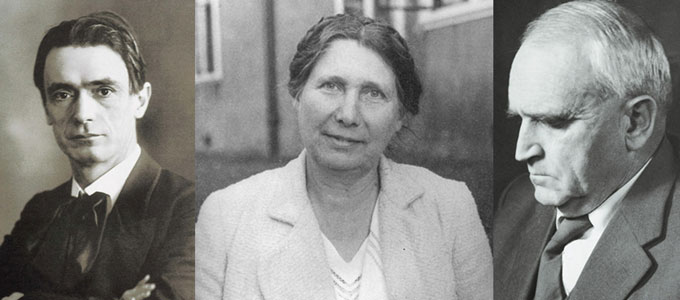 |
|
Weleda 100
Before 2021 slips away, let’s salute Weleda, the healthcare company inspired by anthroposophy that is celebrating its 100th anniversary. In the USA the company is successfully promoting its major offerings as “face, body, and baby,” while in Europe it is also an essential partner for anthroposophic medicine.
Biodynamic cultivation, biodiversity, sustainability, a “hand-picked global farming community,” and fair business practices are part of the whole project — and “giving back to nature more than we take”. A YouTube channel presents the company in videos, and the website unfolds a story the founders would be proud of:
Imagine a brand so in tune with nature, it harvests its ingredients in alignment with the moon and stars. Imagine a brand that has studied plants for nearly 100 years.
In Switzerland 1921, Weleda was founded on the belief that people are part of nature, grounded in a commitment to carefully orchestrate formulas that work with the body’s rhythms to awaken skin’s natural functions. Weleda is still creating those products today, that recognize the power of the natural world to balance mind, body and spirit allowing your beauty to shine through.
Our Heritage
Not unlike today’s start-up culture, Austrian philosopher Dr. Rudolf Steiner, Dutch doctor Ita Wegman (one of Europe’s first female medical doctors) and German chemist and pharmacist Oskar Schmiedel [pictured L-R above] collaborated with a small and enthusiastic team of scientists. In 1921, they created the first synergistic products orchestrated to reconnect the body with its natural rhythms.
B Corp Certified
The international non-profit B Lab has now certified that we are making the world a better place through our corporate culture... As a purpose-driven company, we strive for a future that is environmentally sustainable and socially equitable. We invest our funds with ethical banks. B Lab praised our certified Weleda natural skincare and the equitable relationships we nurture with cultivation partners.
Obtaining B Corp certification was a logical next step for us, so we can put our values into practice even more effectively. Instead of taking many individual measures as in the past, we have now launched an ambitious holistic climate protection programme.
Happy centenary, Weleda—and read more....
|
|
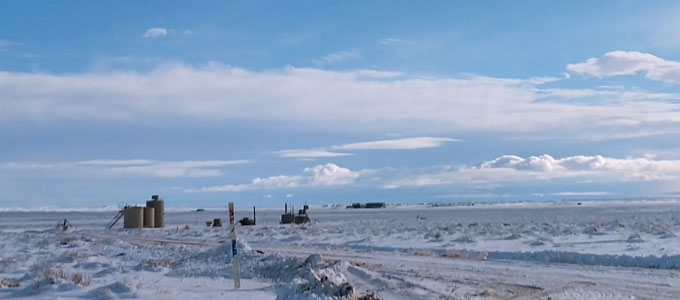 |
|
Literary Arts & Epigrams
Several of John Urban’s poems have appeared in being human, and he wrote recently to say that “Due to illness I was not able to connect in writing or to attend the Annual Conference and the AGM, so belatedly here are some lines hopefully for Building the Temple of the Heart.”
Intuition is the Eye of the Heart.
*
We lift the hands of our Hearts to the Above.
*
A resistant Heart blocks Thought.
*
Love of Truth leads to the Above.
*
—John Urban
The website theliteraryarts.com continues to be a outstanding exposition of the life of the Section for the Literary Arts and Humanities. Recent offerings include “Advent in the Secret Garden: A Report from the Fairy Tale Group, by Marion Donehower,” a new addition in the “Poetics of Place” series on Henry David Thoreau, a reading by poet Philip Thatcher, and a talk by Fred Dennehy on “The Actor’s Process.” Fred’s earlier presentation on Owen Barfield is also online.
There are many inspiring quotations on the site — “All fairy tales are dreams from a distant homeland everywhere and nowhere.” (Novalis) — and photos, portraits, art works. Sites with such great offerings are destinations, and it would be rewarding to spend an afternoon here during the Holy Nights.
Music Out of Confinement
Mark McAlister is former administrator for the Society in Canada, and another interesting literary arts blogger. Mark wrote recently about pianist Ben Cruchley, Toronto-raised, now living in Berlin. “We have invited him back to Hesperus several times, and he is quite a remarkable artist.” [Hesperus Village is an anthroposophical initiative located in Vaughan, Ontario, on a beautiful campus with the Toronto Waldorf School and Rudolf Steiner College Canada, formerly the Rudolf Steiner Centre Toronto.] Ben has created an online lecture-recital “Music out of Confinement” featuring piano sonatas by two prominent composers of the Terezìn Concentration Camp, anthroposophist Viktor Ullmann and Gideon Klein. The video is offered on a pay-what-you-can basis, with half the proceeds donated to Avocats Sans Frontières, an international NGO working to establish the rule of law and access to justice around the world.
|
|
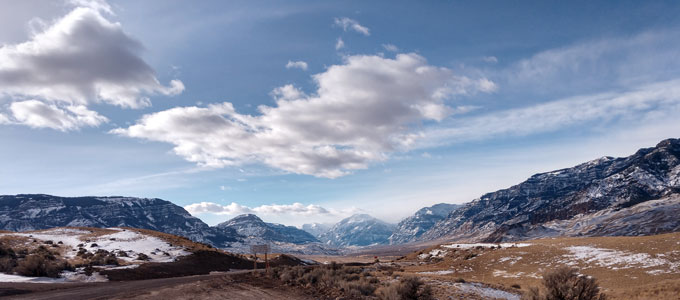 |
|
Much was expected at the beginning of the 20th century. Along with greatness of many kinds, it gave us terrible demonstrations of Rudolf Steiner’s warning, that without the new vision of human nature and potential that is anthroposophy we would soon face the “grave of all civilization,” and that our goal must be to create new culture and a “future worthy of the human being.”
Pope Francis seemed to speak from the same insights recently. “Let us stop this shipwreck of civilization,” he said, visiting a refugee camp on the Greek island of Lesbos. “Let us stop ignoring reality,” Francis said. “How many conditions exist that are unworthy of human beings? How many hotspots [are there] where migrants and refugees live in borderline conditions, without glimpsing solutions on the horizon?”
The Advent season prepares us for the joy of new birth. Today it is up to all of us to make the new birth of humane civilization happen. It is good to be able to report on many bright spots.
Thank you for reading, and be well!
John Beck
Editor, being human
editor@anthroposophy.org
Anthroposophical Society in America
|
|
|
|
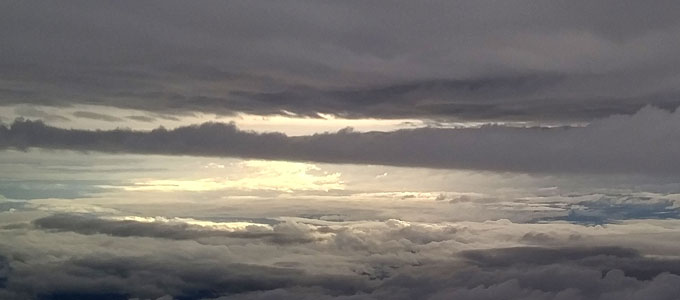 |
|